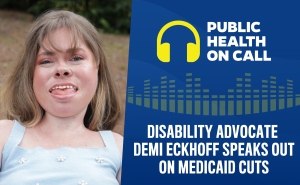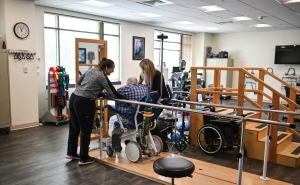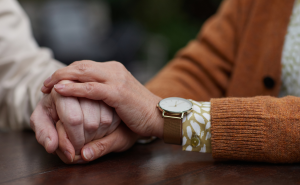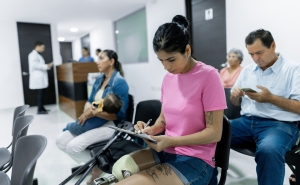Bloomberg School Researchers Awarded $11.7 Million Five-Year NIH Grant to Build and Lead Autism Center of Excellence Network
Network will aggregate global research projects studying gene-environment interaction to understand autism’s causes and to improve quality of life among autistic individuals
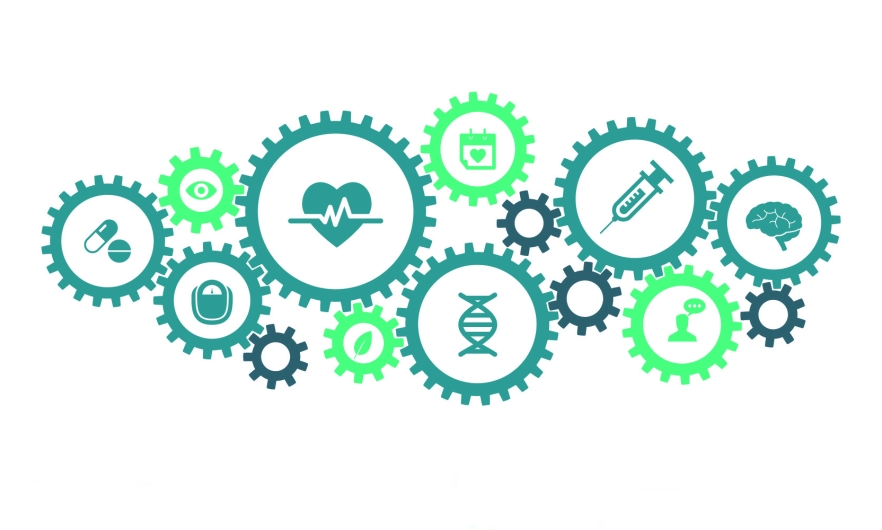
Researchers at the Johns Hopkins Bloomberg School of Public Health have been awarded a $11.7 million, five-year Autism Center of Excellence grant from the National Institutes of Health. The Bloomberg School-based Autism Center of Excellence will lead a global network of research projects studying how the interplay of genetics and environmental factors might increase likelihood of autism, including co-occurring health conditions. One aim is to identify modifiable factors to improve lives of people living with autism. The project will solicit feedback from autistic advisers and others as part of the network’s outreach and dissemination activities.
The Autism Center of Excellence will be based within the Bloomberg School’s Wendy Klag Center for Autism and Developmental Disabilities, which was established in 2013. This is the first Autism Center of Excellence award for the Wendy Klag Center and one of nine ACE awards totaling $100 million NIH made this year.
Autism Spectrum Disorder (ASD) is a developmental disability characterized by social and communication challenges, along with focused interests and repetitive behaviors. In its most recent assessment, reported in 2021 based on 2018 data, the Centers for Disease Control estimated that ASD affects 1 in 44 children in the U.S. Globally, the World Health Organization estimates that ASD affects 1 in 100 children, noting that this figure is an average. WHO also notes that this figure varies considerably across studies and that in many low- and middle-income countries, the prevalence of autism is unknown.
Eighteen research projects—from domestic and international institutions—are joining the Bloomberg School-based network, which will be known as GEARs: Combining Advances in Genomics and Environmental Science to Accelerate Actionable Research and Practice in ASD. Each research project already has data from prior ASD-related, child development, and neuropsychiatric disabilities studies. The network will leverage their collaborators’ expertise and deep-data resources to examine joint effects of genes and environment in an estimated 175,000 individuals in a large-scale epidemiological study. The GEARs network expects to add new research projects, beyond the initial 18, to its roster.
Heather Volk, PhD, an associate professor in the Bloomberg School’s Department of Mental Health, and Christine Ladd-Acosta, PhD, an associate professor in the Department of Epidemiology, are principal investigators of the Autism Center of Excellence award. Volk and Ladd-Acosta also hold leadership roles in the Bloomberg School’s Wendy Klag Center for Autism and Developmental Disabilities.
“The network aims to investigate how environmental exposures, such as pollutants or diet, impact developmental traits, autism symptoms, and other health conditions experienced in people with ASD at a higher rate than those without in the context of genetic variation across individuals,” says Ladd-Acosta. “This research can provide important clues as to which environmental factors could be modified to improve the lives of people with ASD.”
The Wendy Klag Center team is joined by co-investigators Lena Smirnova, PhD, research associate, and Thomas Hartung, MD, PhD, professor and Doerenkamp-Zbinden Chair, in the Department of Environmental Health and Engineering, which spans the Bloomberg School of Public Health and Johns Hopkins Whiting School of Engineering.
Under the auspices of the ACE award, Smirnova and Hartung will lead research on gene-environment interactions using three-dimensional brain organoids complementing the epidemiologic research. Brain organoids are produced using human stem cell cultures and mimic the developing human brain.
When the multi-year research projects begin to yield results, the network will share research findings with key stakeholders, including individuals with autism, parents, educators, caregivers, and clinicians. Lead PIs Volk and Ladd-Acosta envision building an infrastructure led by the Bloomberg School-based GEARs team, in collaboration with their network colleagues, in order to discuss stakeholders’ needs and autism issues.
“We hope that through creating collaborative infrastructure, our network will not only help us better understand factors that contribute to ASD and neurodevelopmental outcomes, but also provide actionable findings that can improve health for people with ASD and their families,” says Volk.
# # #
Media contacts: Michelle Landrum Trice at mlandru5@jhu.edu and Barbara Benham at bbenham1@jhu.edu.

